| |||||
| Decades: | |||||
|---|---|---|---|---|---|
| See also: | |||||


Events from the year 1858 in Sweden
| |||||
| Decades: | |||||
|---|---|---|---|---|---|
| See also: | |||||


Events from the year 1858 in Sweden
This article contains information about the literary events and publications of 1858.
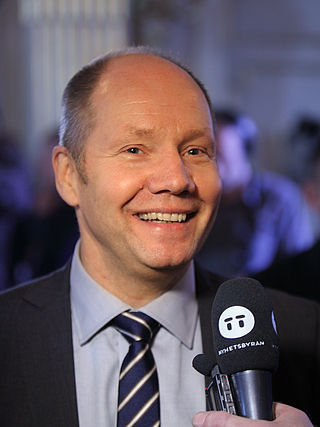
Peter Mikael Englund is a Swedish author and historian born on April 4, 1957. He focuses on writing non-fiction books and essays, mostly about the Swedish Empire and other historical events. Englund is known for his accessible writing style, which includes narrative details that are often left out in traditional history books. His works have been translated into multiple languages, including German and Czech. From 2009 to 2015, Englund served as the permanent secretary of the Swedish Academy, before being succeeded by Sara Danius. In January 2019, he and fellow academy member Kjell Espmark announced their return as active members of the Swedish academy, where they had been inactive since April 2018.
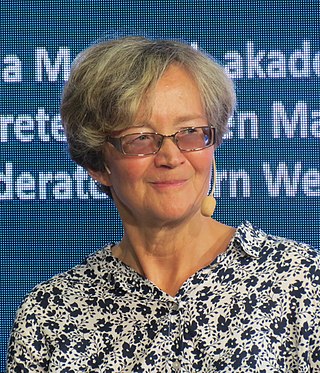
Ellen Mattson is a Swedish writer. Her first fictional work to be published in English translation was Snow (2005), a historical novel set in the early 18th century.
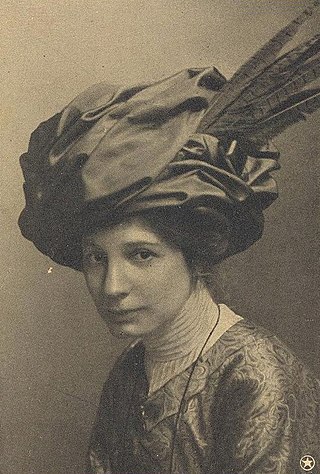
Elin Matilda Elisabet Wägner was a Swedish writer, journalist, feminist, teacher, ecologist and pacifist. She was a member of the Swedish Academy from 1944.

Carin Sophie Adlersparre, known under the pen-name Esselde was one of the pioneers of the 19th-century women's rights movement in Sweden. She was the founder and editor of the first women's magazine in Scandinavia, Home Review, in 1859–1885; co-founder of Friends of Handicraft in 1874–1887; founder of the Fredrika Bremer Association (Fredrika-Bremer-förbundet) in 1884; and one of the first two women to be a member of a state committee in Sweden in 1885.
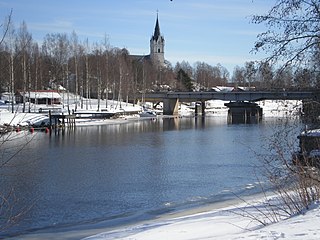
Sunne is a locality and the seat of Sunne Municipality, Värmland County, Sweden with 10,000 inhabitants in 2010.
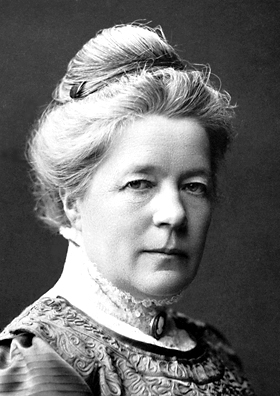
Selma Ottilia Lovisa Lagerlöf was a Swedish writer. She published her first novel, Gösta Berling's Saga, at the age of 33. She was the first woman to win the Nobel Prize in Literature, which she was awarded in 1909. Additionally, she was the first woman to be granted a membership in the Swedish Academy in 1914.
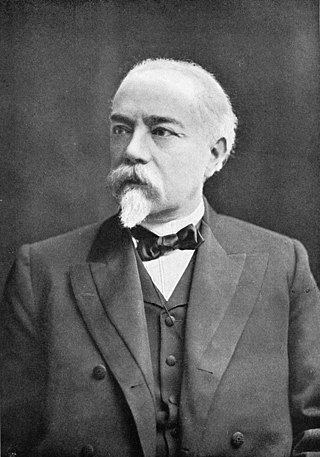
Carl David af Wirsén was a Swedish poet, literary critic and the Swedish Academy's permanent secretary 1884–1912.
The National Association for Women's Suffrage was a part of the general suffrage movement and the national society for women's suffrage in Sweden. It functioned as a parallel to the Sveriges allmänna rösträttsförbund which was active mainly in acquiring full suffrage for males. The LKPR was a part of the International Woman Suffrage Alliance. It was active locally from 1902 as the Föreningen för kvinnans politiska rösträtt, and nationwide as the Landsföreningen för kvinnans politiska rösträtt from 1903 until 1921.

The Royal Seminary, fully the Royal Advanced Female Teachers' Seminary, was a normal school in Stockholm, Sweden. It was active from 1861 until 1943. It was the first public institution of higher academic learning open to women in Sweden.
Eva Helen Ulvros is a Swedish historian and author. She is a professor at the University of Lund, where she specializes in the social development of gender identity and cultural aspects of history in Sweden. She is a native of Lund.
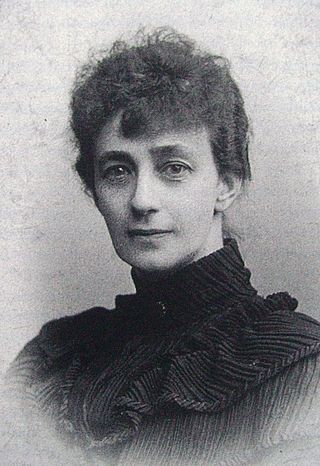
Sophie Elkan née Salomon, was a Swedish writer and translator.
Events from the year 1940 in Sweden

Events from the year 1862 in Sweden

Events from the year 1928 in Sweden

Events from the year 1909 in Sweden

Events from the year 1841 in Sweden

Valåsen Manor is a manor house at Valåsen och Labbsand. The manor is located in Karlskoga Municipality, Örebro County, Sweden. The current-standing manor house was built in the 18th century, but the history of the property is older. Valåsen Manor is one of Karlskoga's major historical buildings.

The 1908 Nobel Prize in Literature was awarded to the German philosopher Rudolf Christoph Eucken (1846–1926) "in recognition of his earnest search for truth, his penetrating power of thought, his wide range of vision, and the warmth and strength in presentation with which in his numerous works he has vindicated and developed an idealistic philosophy of life." He is the second German to be awarded the prize and the first philosopher to be a recipient.
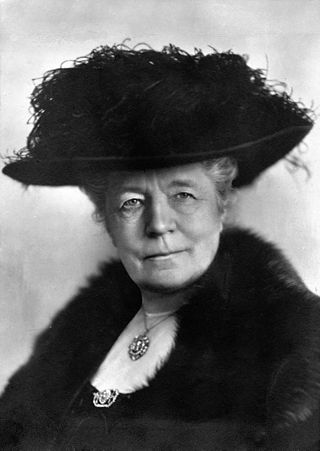
The 1909 Nobel Prize in Literature was awarded to the Swedish author Selma Lagerlöf (1858–1940) "in appreciation of the lofty idealism, vivid imagination and spiritual perception that characterize her writings." She became the first woman and first Swede to be awarded the prize.